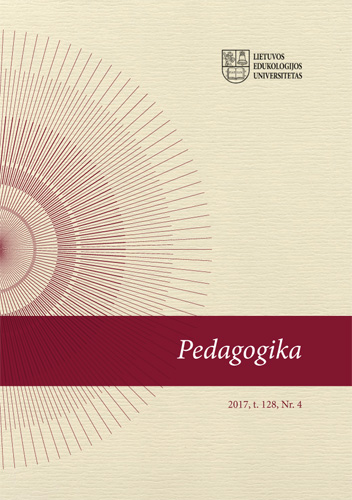Preparing Professionals for Working in Multicultural and Democratic Europe: Two Pedagogical Programs – Their Assessment and Collaborations
Preparing Professionals for Working in Multicultural and Democratic Europe: Two Pedagogical Programs – Their Assessment and Collaborations
Author(s): Irina Golubeva, Ivett Rita GuntersdorferSubject(s): Education, Geography, Regional studies, Cultural Anthropology / Ethnology, Higher Education , Globalization, Sociology of Education
Published by: Vytauto Didžiojo Universitetas
Keywords: intercultural development course/certificate program; higher education; intercultural competence; global/intercultural citizenship; multiculturalism;
Summary/Abstract: There has been continuous debate concerning policies and practices regarding intercultural education in the multicultural Europe and intercultural competence has become one of the crucial issues today. There is an urgent need to educate students about the limitations of using their own cultural frame to interpret and evaluate people belonging to a different cultural background. For quite long intercultural communication courses were typically offered for students in Education, International Relations, Business, and a like programs, while this subject was out of scope until the last few years in other disciplines. However, recent social and political changes are forcing program developers to work on a general intercultural preparation of professionals from all backgrounds. There is an educational need to focus on how to prepare interculturally competent students, to act in a drastically changing society as true global citizens, who have a motivation for civic engagement and contribute to their community. More than that, according to the new framework by the Council of Europe, there is a political need for the new generation of young people to get involved with the democratic society in an active way (Council of Europe, 2016). This paper presents two similar structures for a long-term intercultural program, where civic mindedness receives an important scope (Guntersdorfer and Golubeva, 2017). These programs can be offered to students from all disciplines in higher education. Both educational efforts aim to broaden knowledge of the meaning of culture by providing students with theories from linguistics, psychology, sociology, ethnology, and political science. Although pedagogical set-up slightly differ, there is a strong motivation for cooperation. The following article provides a description of the theoretical and pedagogical concepts of these two programs, draws on research plans and assessment methods, and lays down the groundwork for a collaboration.
Journal: Pedagogika
- Issue Year: 128/2017
- Issue No: 4
- Page Range: 39-54
- Page Count: 16
- Language: English

